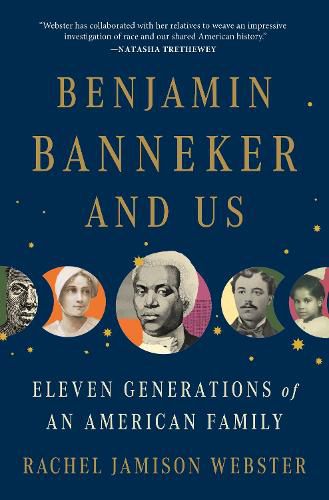Readings Newsletter
Become a Readings Member to make your shopping experience even easier.
Sign in or sign up for free!
You’re not far away from qualifying for FREE standard shipping within Australia
You’ve qualified for FREE standard shipping within Australia
The cart is loading…






Placing famed almanac writer Benjamin Banneker at the forefront, Benjamin Banneker and Us weaves together past and present to explore the insidious forces of racism that shape our understanding of ancestry, lineage, and family today.
Lyrically written, Rachel Webster’s Benjamin Banneker and Us examines her own ancestry and relation to Benjamin Banneker, the African American mathematician and writer of almanacs who surveyed Washington, DC, for former president Thomas Jefferson.
Acting as a griot, Webster draws on oral history and conversations with DNA cousins to imagine the lives of their shared ancestors, among them Banneker’s grandparents, an interracial couple who broke the law to marry when America was still a conglomerate of colonies under British rule. These stories shed light on the construction of whiteness and the laws that gave it meaning. Webster’s passionate and authoritative account adds to the growing body of work addressing structural racism and the inevitable reckoning on race, history, and the legacies of slavery that still affect our society.
$9.00 standard shipping within Australia
FREE standard shipping within Australia for orders over $100.00
Express & International shipping calculated at checkout
Placing famed almanac writer Benjamin Banneker at the forefront, Benjamin Banneker and Us weaves together past and present to explore the insidious forces of racism that shape our understanding of ancestry, lineage, and family today.
Lyrically written, Rachel Webster’s Benjamin Banneker and Us examines her own ancestry and relation to Benjamin Banneker, the African American mathematician and writer of almanacs who surveyed Washington, DC, for former president Thomas Jefferson.
Acting as a griot, Webster draws on oral history and conversations with DNA cousins to imagine the lives of their shared ancestors, among them Banneker’s grandparents, an interracial couple who broke the law to marry when America was still a conglomerate of colonies under British rule. These stories shed light on the construction of whiteness and the laws that gave it meaning. Webster’s passionate and authoritative account adds to the growing body of work addressing structural racism and the inevitable reckoning on race, history, and the legacies of slavery that still affect our society.